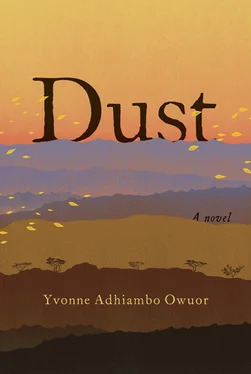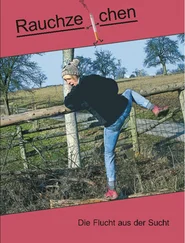“ Etch! Where did you go?” Akai-ma asked.
Odidi leaned back on one foot and looked back at his mother. A chin gesture indicated west, the place of the rock shelter.
A furrow on Akai’s forehead.
Odidi said, “Far behind the red stone. Where smoke and water come from the ground. I showed Ajany.”
Dangerous. But not forbidden. Not like the rock shelter.
The creases on Akai-ma’s face disappeared. Light lost to sky darkness above them. Akai-ma and Ajany shivered at the same time, night haloes atop their heads.
“Italeo akitap,” Akai-ma started. “That part is forbidden!”
A light flashed in the sky.
Akai-ma’s eyes bright, voice low. “There’s a python,” she warned. “There’s a python. And all the red stone belongs to it.” She glowered at Ajany. “It sucks spirit out and leaves shadows for you to rot in.”
An incantation.
Akai-ma’s eyes met Ajany’s.
Oddly, for the first time in both their lives, Akai-ma’s eyes slid away first.
Later that night.
Odidi and Ajany had washed, eaten fermented meat soup, crawled into their beds, and drifted to sleep. Both woke mid-rest and discovered there were new ways of being afraid. Separately, they longed for daylight. From that day, their days were stuffed with choked fear, suffocated by the family habit of silence. At night, when wind jolted doum palms, nightmares made of white bones, teeth-filled mouths, and indecipherable words showed up. Twice in the night, Ajany woke up to find that the shadows from within her dreams had become a presence that stood over her. Behind the presence, a baby’s long wail, the sorrow of which made Ajany cover her head. The presence dissolved; the unseen child and its incessant wailing lingered.
One night, four days later, Ajany tore out of her room and jumped onto Odidi’s bed. “Odi … Obarogo came. He wants my face.”
Odidi said, “I’ll fight him. I’ll punch his bones until he has a face.”
Ajany had not laughed. “Promise, ’Didi?”
“Promise forever, ’Jany.” Odidi turned down his coverlet.
Ajany snuggled down next to him and grabbed his hand. She was drifting to sleep when she thought she heard him whisper, “Good you’re here, silly. Me, too, I was scared.” She could have heard wrong, because she knew Odidi was not afraid of anything.
Under a harvest moon, a woman now sleeps. Childhood pillows do not offer simple dreams. Before dawn, a new name explodes from out of her underworld. “Bernardo!” she howls.
To name the unnameable is a curse.
Bernardo! The entity rips at her heart and she arches her back, away from the sense of salted wounds that still bleed, still seethe, still yearn, still make her moan. She tugs at air, fighting portions of her life that are trying to disintegrate into Bernardo again. She clings to another name for protection: a talisman. He has always known what to do.

A bird somewhere cackles with a hint of hysteria. In the library, a cold feeling starts at the base of Isaiah’s spine and rushes to his head, making his hair stand on end. Is the night watching me? He blinks away the mad idea. What time is it? He touches his watch. Wuoth Ogik. Not just words anymore. He gropes for and finds a window chair, falls into it. His bag falls by his feet. He touches it, relishing the cool of its leather against his palms.
The house shivers when its old tanks creak.
Isaiah recoils.
Aggravated insomnia. Isaiah has not slept for two days. Jet lag. That is the problem. Explains the whisperings he hears in the land’s nights, the return of nightmares, those things he thought he was finished with. For more than three years, he has been unable to sleep without all-night radio chatter or a night light. He had started experimenting with being in total darkness six months ago, and it had been successful. But now, in this space of no boundaries, the darkness has a throbbing, dense menace to it. He feels safer watching it.
He also needs to talk to someone about Hugh. A day earlier, Isaiah had retrieved sheets of paper with more of Hugh’s signatures — plans, sketches, designed spaces, lines, curves, and outlines of this house, which had been tucked into some large books. He had sat for a long time on the edge of a couch, reconciling exhaustion with the bittersweetness of a conviction that he was in his father’s home.
Old man Oganda stiffens every time he approaches. Spends his days digging a hole, and pretends not to speak English. No understand . Sure.
Isaiah paces. The ghastly creature cackles again. Echoes. A skin-chilling aaaaado!
He stops. He needed a break from his obsession with frontlines and transition zones of terrible absences. Outside, a clattering of doum palm leaves. Isaiah glares. When do the bloody winds end their garbled groaning? Too much life; everything breathes here, even the damn stones. Too much space. But being in the house is like being crammed into a too-slow metal lift with no light. He hates the startling creaks of many unseen things here.
A hyena’s guffaw; he shivers. This land, its awful age — here time hums an ancient, eerie tune. The hyena cackles, and all of a sudden Isaiah is deluged by a need to see the wide sky. He leans out of the window.
… aaado!
He sprints out of the room.
In Wuoth Ogik’s courtyard, a pang as if he, the outsider, walking toward this outside , will never find his way back to normal . But he is hungry to experience his lost father. This was Hugh’s house — a certainty. Isaiah wonders about his five pages of questions: Who to ask when nothing answers back? A groan.
Up.
So many wild stars in the night.

Whirling backward in time, becoming Arabel again, finding that blood still congealed on a Christmas Eve white silk robe. It left the imprint of an oryx’s face mask. Whirling, and all life whirled. She was just Arabel, the way Bernardo sang her. Arabel Ajany writhing around a steel pole, accompanying Bernardo’s seven-minute story, which he sang in a throbbing bass. Her life in stark light twice a week, working so hard to show Bernardo how necessary she was to him.
Except that she was replaced on Christmas Eve.
Before the blood, she had dialed Odidi’s number. He would know what to do. But she had switched off the phone after the fourth ring.
After.
From under her bed, she had dialed Odidi’s number again. She would tell him what she had done. She would beg him to come and get her. She heard Odidi’s phone ringing. It rang until it returned with a message in two languages: Mteja hapatikani kwa sasa; the mobile subscriber cannot be reached .
And then, a day later, after midnight, Nyipir Oganda had phoned her and said, “Odidi is gone.”
A strange idea: Gone. Where?
Ajany laughed out loud then.
Ajany laughs now.

Isaiah watches the fire that burns close to a woman who barely breathes on her tattered mat.
“May I help?” he had asked Nyipir a day and a half ago.
“No.”
Isaiah said, “She’s unconscious.”
“Really?” Nyipir’s brow had gone up.
Isaiah was convinced that, given the smallest chance, the silly bugger would have clouted him on the skull to make him disappear. A grim grin — he would leave only when he was ready.
Isaiah had persisted, “She needs help?”
Nyipir’s terse “Someone’s coming.”
Читать дальше












